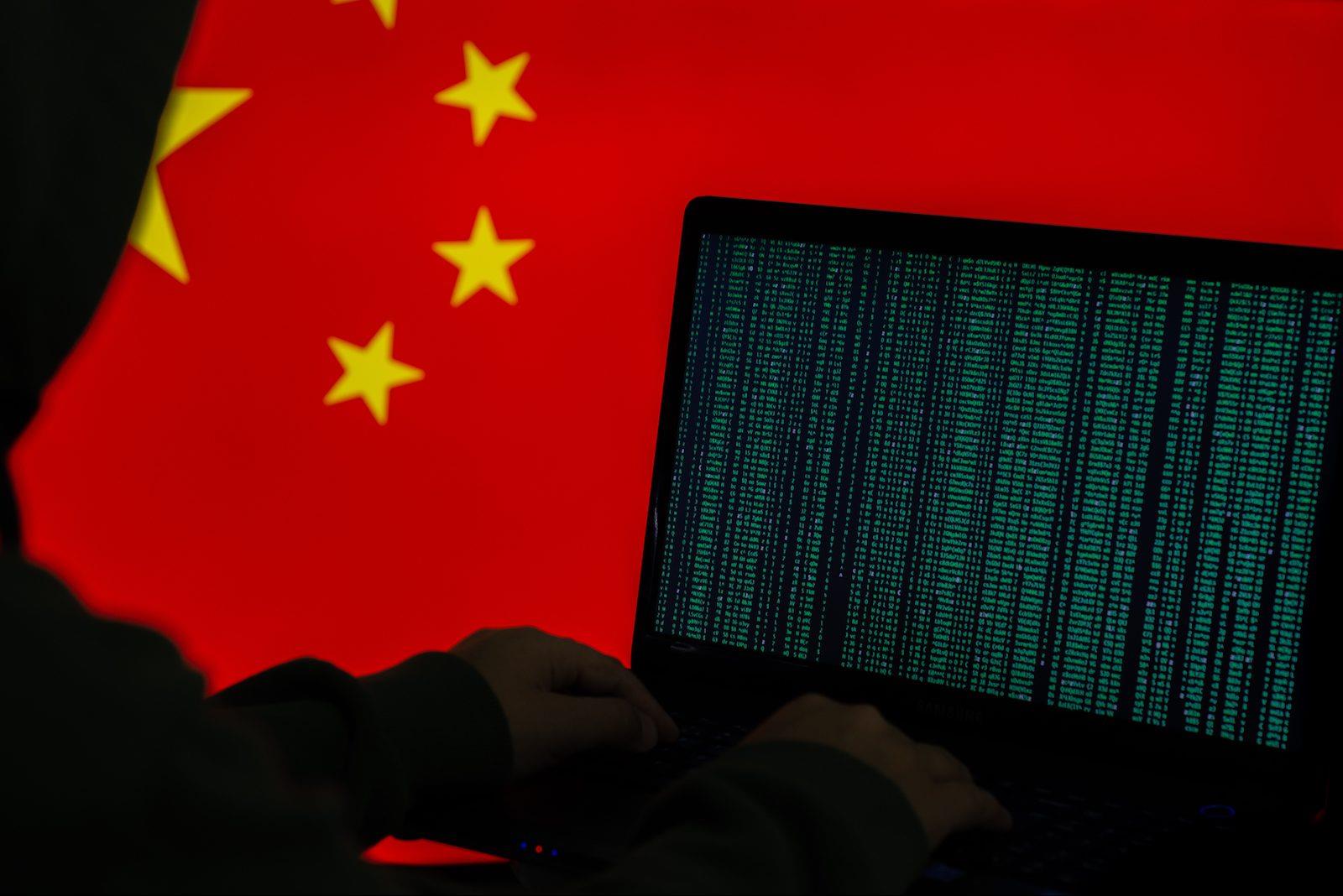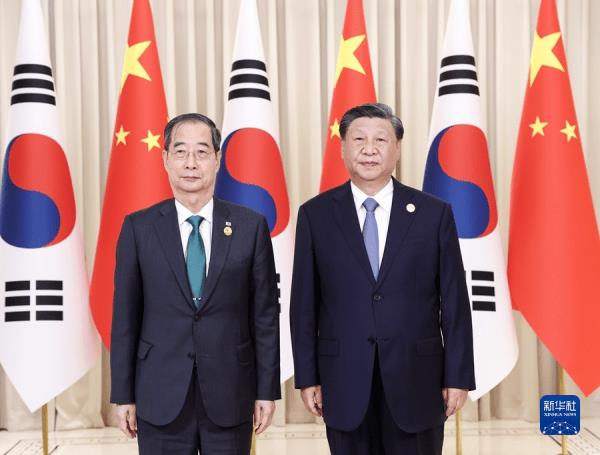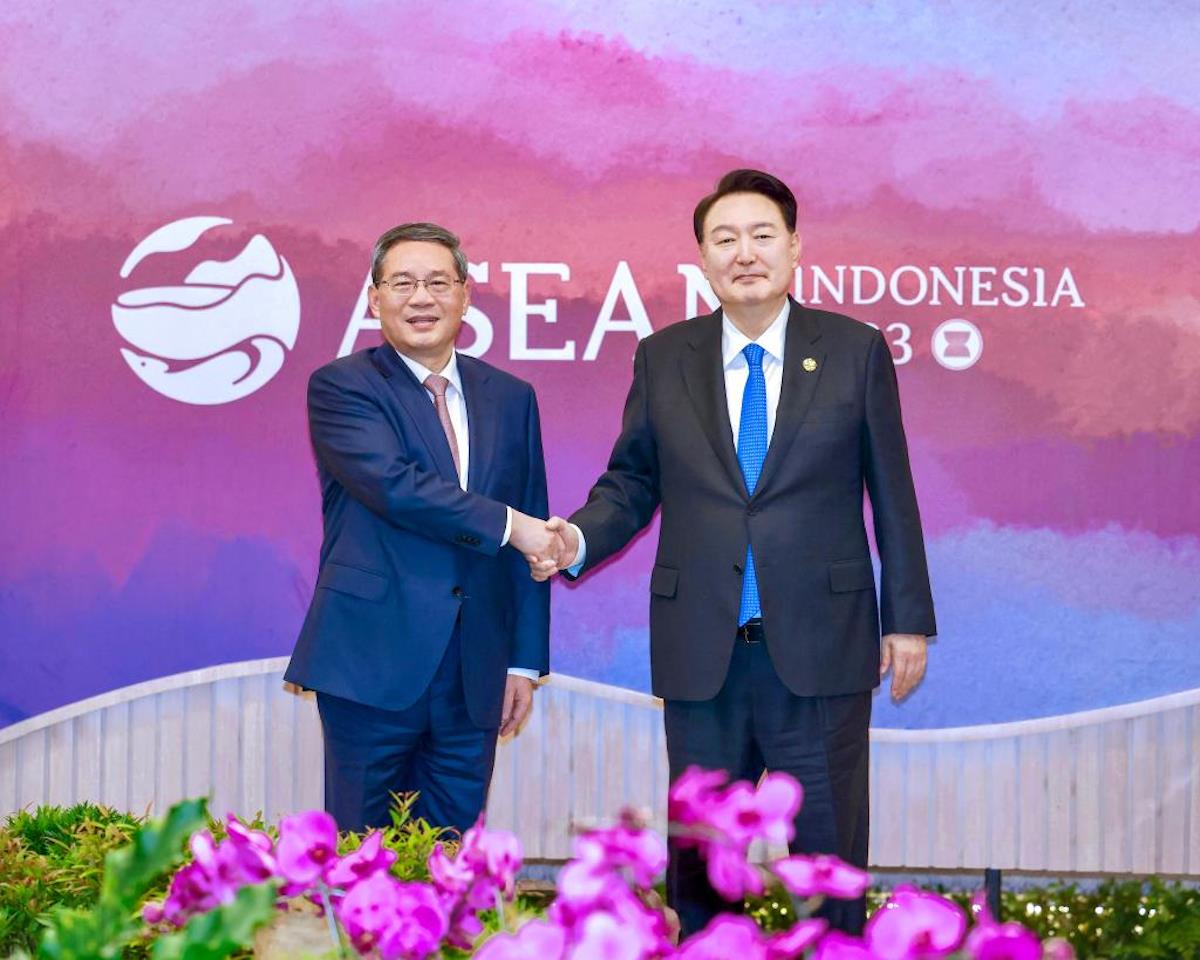
S Korean Trade, Diplomacy Trending Away From China
A
significant measure
of the impact of South Korea's evolution in geopolitical orientation is reflected in the shift in South Korea's trade relations: The United States became South Korea's number one export destination in December 2023, surpassing China for the first time since 2004.
South Korea also recorded an US$18 billion trade deficit with China, the first bilateral deficit with China in 31 years. South Korean exports to China in 2023 dropped 20% year-on-year, to $124.8 billion, while imports from China dipped 8% year-on-year, to $142.8 billion.
Strong investment flows to the United States by South Korea's major conglomerates have resulted in a boost in South Korean car, automobile part and automotive battery exports. If such trends continue, South Korea in 2024 may have the distinction of being the only country adjacent to China for which China is not its number one trade partner.
Definitely affecting the bilateral relationship was
the December 2023 announcement by the Ministry of Trade, Industry and Energy of its 3050 Strategy initiative
designed to stabilize South Korea's supply chains and reduce dependence on China to less than 50% by 2030.
The trade ministry's effort to reduce dependence on China in its supply chains responds to a deeper realization in South Korea of that country's vulnerability to possible Chinese economic retaliation.
The impact of deepening geostrategic rivalry is clearly contributing to a reconfiguring of political and economic relationships in Northeast Asia.
South Korea appears to be drawing away from China's geoeconomic orbit as South Korean investment in the United States reinforces the geopolitical choices of the Yoon administration.
Meanwhile, Chinese diplomacy toward Seoul has sputtered forward, driven more by multilateral gatherings involving the two countries than any sense of strategic purpose.
Ministerial and working-level economic dialogues on issues such as supply-chain stability, export controls, and trade facilitation continued between China and South Korea, but these exchanges did not generate the traction necessary for substantive bilateral meetings.
Bilateral and trilateral foreign ministerial meetings in Busan between South Korean Foreign Minister Park Jin and counterparts Wang Yi and Kamikawa Yoko also failed to generate sufficient momentum to set a date for the resumption of China-Japan-South Korea summitry.

Behind China's hack of UK's Electoral Commission

China challenges United States' EV subsidies at WTO

Han and Xi meet. Photo: Chinese government
Prime Minister Han Duck-soo's September 2023
visit to China
was the first by a South Korean prime minister in over four years and generated expectations in South Korea that Chinese President Xi Jinping might make his first visit to Seoul since 2014.
Han requested China's support for South Korea's bid to host the 2030 World Expo in Busan and for the Yoon administration's “audacious initiative” toward North Korea .
Xi emphasized
the importance of“friendly cooperation” and expressed hope that South Korea“will work with China in the same direction, [and] take policies and actions that can reflect the importance it attaches to the development of China-ROK relations ...”
However, Liaoning University Professor Lü Chao stated in the Global Times that political tensions generated by President Yoon's pro-US approach and statements regarding Taiwan had“become a significant barrier to revive the three-way cooperation mechanism” between China, Japan, and South Korea.
Another development affecting the bilateral China-South Korea relationship was the announcement of a US-South Korea joint effort to counter disinformation.
The signing of the US-South Korea memorandum of understanding occurred on the occasion of
US Under Secretary of State for Public Diplomacy Liz Allen's
visit to Seoul in December, reflecting South Korean concerns about false propaganda and global disinformation campaigns.
The signing of the MOU is even more salient in light of reports that the
Chinese Ministry of State Security
attempted to hack South Korea's Ministry of Foreign Affairs and infiltrated the computer network of the Presidential Office during the Moon Jae-in administration (2017-22).
Annual ASEAN and APEC meetings have long provided opportunities for national leaders to hold summit meetings, such as when Yoon met Xi at the
November 2022 G20 Summit in Bali . But the November 2023 APEC meeting in San Francisco generated only an exchange of greetings between Xi and Yoon.
Likewise, despite Xi's expression of willingness to visit Seoul in his meeting with Han, South Korea's preparations to host the first leader-level trilateral meeting with China and Japan yielded no fruit in 2023.
President Yoon and Premier Li Qiang held two brief encounters in quick succession on the sidelines of the ASEAN and G20 summits in early September. Yoon expressed hope that the North Korean nuclear issue would not be an
obstacle
to improved China-South Korea relations.
Premier Li emphasized
the need to expand cooperation to“seek mutual benefit and win-win results.”
Chinese scholar Zhan Debin has laid out the obstacles to the realization of a trilateral summit in a Global Times column pointedly titled“South Needs to Prove Sincerity for China-Japan-SK Summit.” The article takes issue with the proposition that South Korea will be able to induce greater respect from China based on closer relations with the United States and Japan, asserting that South Korea has instead weakened its“autonomy.”
Second, Zhan points to Yoon's disavowal of the Moon-era“three nos and one restriction” understanding regarding THAAD missile defense and its disregard for Chinese“red lines” on Taiwan, the South China Sea, and Xinjiang. Zhan concludes that“if South Korea is pushing for the China-Japan-South Korea trilateral talk because of US instructions, it would be better not to hold the meeting at all.”
Trying trilateral summitryAmid such rhetoric, China participated in the trilateral senior officials' meeting in Seoul in late September and meetings with ROK Foreign Minister Park Jin. Those meetings were accompanied by a more optimistic tone from the Global Times, emphasizing the unchanged framework of“gain from cooperation, lose from confrontation” stemming from economic interdependence, economic development, and close geographical and cultural ties.
However,
Chinese commentators responded
negatively to the virtual US-Japan-South Korea defense ministerial meeting in mid-November alongside the US-South Korea Security Consultative Meeting in Seoul.
Liaoning University's Lu Chao suggested that, following the Camp David Summit, enhanced United States-Japan-South Korea military cooperation contributed to a worsening of tensions on the Korean Peninsula. And China Foreign Affairs University's Li Haidong asserted that such ties would make the Korean security situation more volatile.
Park Jin met Wang Yi on the sidelines of the trilateral China-Japan-South Korea foreign ministers' meeting in Busan at the end of November. The
South Korean readout
from the bilateral meeting emphasized joint efforts to strengthen mutual understanding, strengthen strategic communication, and contribute to regional and global peace and prosperity through economic cooperation, promotion of people-to-people exchanges, and restoring and normalizing cooperation among China, Japan, and South Korea.

Sign up for one of our free newsletters
- The Daily ReportStart your day right with Asia Times' top stories AT Weekly ReportA weekly roundup of Asia Times' most-read stories
The Chinese readout reported
Wang's description
of changes in the international and regional landscapes and their impact on China-South Korea relations in greater detail. Wang emphasized that“China and the ROK are neighbors ... and this objective fact will never change,” arguing that cooperation is the only path through which to develop a mutually trusting and respectful relationship.
Chinese
and
South Korean
readouts of the trilateral meeting with Japanese Foreign Minister Yoko Kamikawa emphasized efforts to institutionalize cooperation through a trilateral leader-level summit at the earliest possible time and deepen substantive trilateral cooperation.
In addition to the foreign ministerial meeting, the three countries
successfully hosted
the 16th trilateral health ministers' meeting in early December, the first time the gathering had been held in four years.
It remains to be seen how China grapples with closer Japan-South Korea relations and whether China will achieve the normalization of a“win-win-win” relationship among the three countries“with a particular emphasis on Tokyo and Seoul demonstrating more strategic autonomy” – or whether the Camp David Summit will create additional impediments and constraints on China's ability to project its sphere of influence in the region.
With Yoon in office until 2027, Seoul's emphasis on closer trilateral cooperation with Washington and Tokyo, as well as on reducing dependency on China's market, appears likely to continue. If Beijing does not adopt a more proactive approach to the ROK, its ties may have atrophied considerably Seoul by then, even if a friendlier president has assumed office.
Scott Snyder (... ) will assume the role of president of the Korea Economic Institute of America in Washington, DC, in April 2024 and is a senior advisor for Pacific Forum. See-Won Byun (... ) is an assistant professor of international relations at San Francisco State University.
This article was originally published by Pacific Forum and is republished with permission. The article summarizes the authors' chapter in the January 2024 issue of Comparative Connections, which can be read in its entirety
here .
Thank you for registering!
An account was already registered with this email. Please check your inbox for an authentication link.

Legal Disclaimer:
MENAFN provides the
information “as is” without warranty of any kind. We do not accept
any responsibility or liability for the accuracy, content, images,
videos, licenses, completeness, legality, or reliability of the information
contained in this article. If you have any complaints or copyright
issues related to this article, kindly contact the provider above.

















Comments
No comment